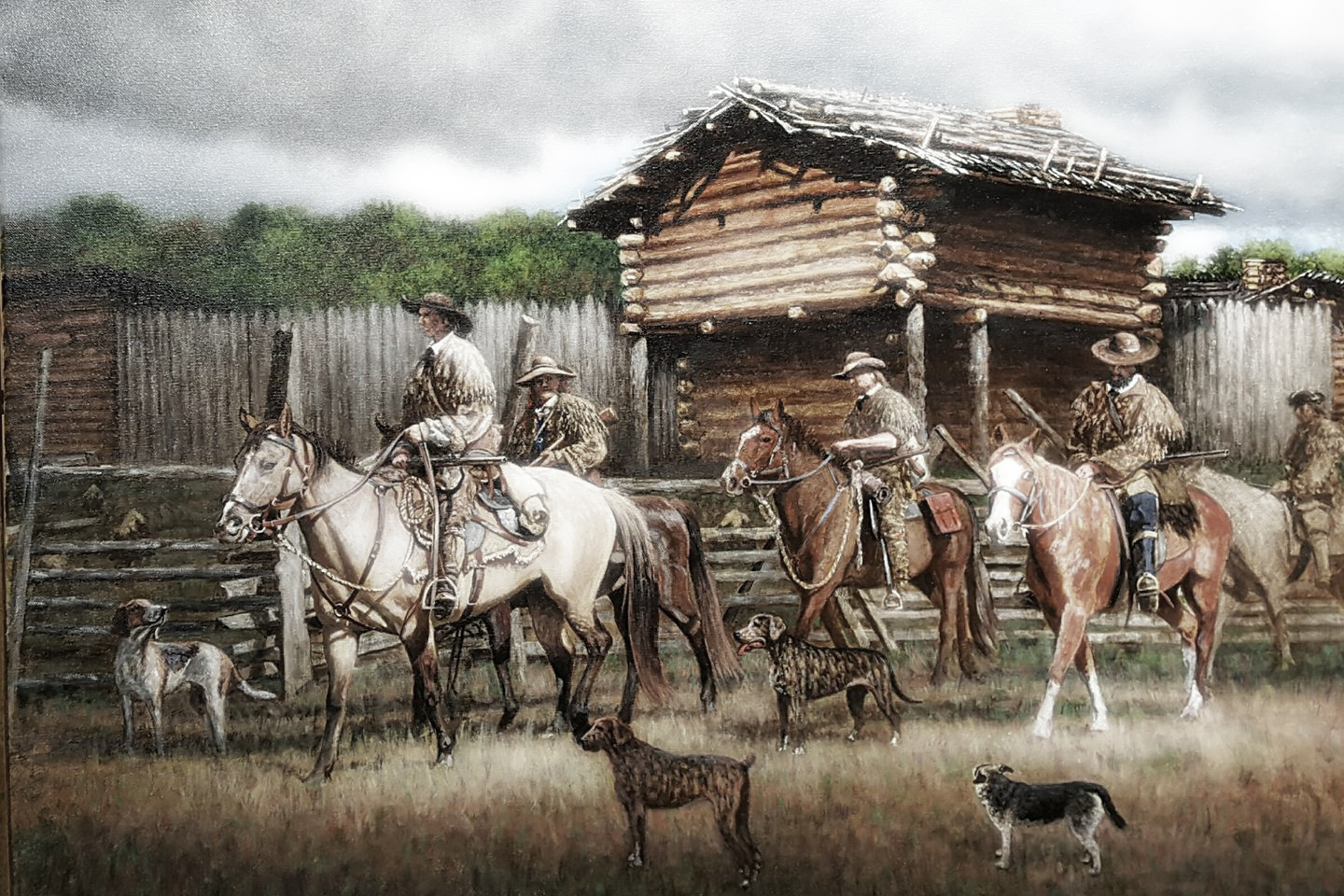Recollections of Bird's Fort Settler Alexander W. Webb
The Democrat (McKinney, TX), Vol. 8, No. 6, Ed. 1, March 12, 1891

The Long Ago: A. W. Webb Relates Some Early Texas History to a Democrat Reporter
Last Monday morning a Democrat reporter met Mr. A. W. Webb at [illegible] Wilson & Co.'s restaurant. Mr. Webb lives near Mesquite in Dallas county, Texas, and had just arrived in McKinney, from Shiloh, Denton county, Texas, accompanied by his son-in-law, C. A. McMenns.
He said he was born near Chillicothe, Ross county, Ohio, on May 1, 1811, from which he moved to Illinois, in the year 1831. During the following year he served in the Black Hawk war. He first came to Texas in 1836, but returned to Illinois in 1839. The following year he returned to Texas and settled in Red RIver county. He married Miss Lucinda Crownover, of Clarksville, on Sept. 5, 1841. There were 11 children born to him—5 boys and 6 girls, of which 2 boys and 3 girls are dead. Three sons live near Melissa in this county, two daughters live in Dallas county and one in Shiloh, Denton county. Mr. Webb will be eighty years old on May 1, next. He still remains strong and jovial and can ride horseback thirty-five miles in one day without experiencing any unusual amount of fatigue.
Clarksville, when he settled in Texas, was a small place of only about two business houses. He tells an odd story of Judge Hansford, the first judge of Red River county. One day while the court was engaged in a case of cattle stealing, the judge being a little "tipsy" went to sleep while the lawyers were pleading. After the lawyers had finished their talk the judge was found to be "snoring away". It was evident that it would take considerable manifestation to wake him up. With this idea in view, the jury and lawyer—and possibly others present—went outside and proceeded to pelt the house with rocks, which resulted successfully in arousing his honor from slumbering. Our informant could not inform us in regard to the verdict.
Mr. Webb tells us that in the spring of 1841, John B. Denton (in whose honor Denton and Denton county were named,) was killed by the Indians near Village creek in Tarrant county. The Indians fired from ambush and killed the brave lawyer from Clarksville—John B. Denton.
In Sept. 1841, Mr. Webb, just one week from the date of his marriage, in company with about 30 others, of which he was captain, started west for the purpose of building Bird's fort near West Fork of Trinity on Alligator lake in Tarrant county, about 10 miles north of east of Fort Worth. Jonathan Bird of Clarksville was sent out to superintend the building of the fort, which bears his name and which, and which was located about [illegible] miles from the present site of Birdville. While the company was on its way it halted at English's [sic] block, the present site of Bonham, to reorganize. At this place the company swelled to a greater number, from which place it marched and traversed the north part of Collin county, crossing East Fork and Honey creek, north of the present site of McKinney. Edward Tarrant, a lawyer of Bowie county, was in command of the district militia. Tarrant county was named in his honor.
Mr. Webb is well acquainted with our distinguished citizen[s], Hon. J. W. Throckmorton, Uncle Tom Rattan and many others. He says that Gov. Throckmorton prosecuted the claims of the builders of Bird's fort, in the Texas legislature; that he (Webb) received $540 net. The governor gave him an order on his partner, Mr. Brown, for the amount, which was promptly paid. Mr. Webb says that he had always voted the democrat ticket, that he is a member of the Farmer's Alliance and expects to remain so as long as he lives; that he believes the principles of the Alliance, will in the near future, in addition to bettering the condition of the farmers, will bring about a better feeling between members of all honorable classes.
Forty years ago! Down memory's corridors, how many heroic Texas scenes can be recalled by the brave gray-haired pioneers. Then the broad wild prairie lay in all its primeval beauty. The sod remained unturned by the march of civilization and unmolested by its plowshare. Where the camp fire blazed then, the rushing populace of a city is now seen. Let us honor these brave men who made it possible to enjoy the possibilities of today. One by one the are stepping into the low wayside Inn.
They suffered for us. We cherish their memories.

